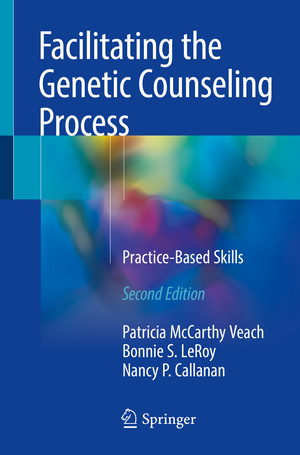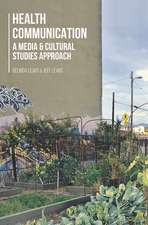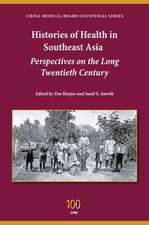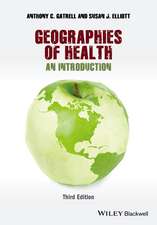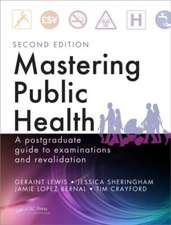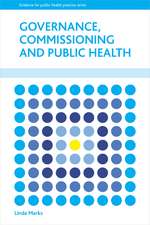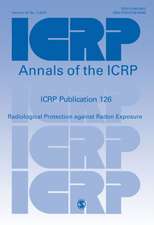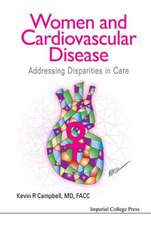Facilitating the Genetic Counseling Process: Practice-Based Skills
Autor Patricia McCarthy Veach, Bonnie S. LeRoy, Nancy P. Callananen Limba Engleză Paperback – 11 mai 2018
Now in its revised and updated second edition, this text provides a practical way of teaching genetic counseling helping skills. The contents can be used by genetic counselor educators and supervisors to facilitate student professional development, including gaining knowledge about basic helping skills; practicing using the skills specific to genetic counseling services; and understanding one's self as a professional in training. New topics include: the Reciprocal-Engagement Model (REM) of genetic counseling practice; research findings about genetic counselor professional development, values, compassion fatigue, burnout, and distress; expanded discussion of patient factors; and more attention to cultural issues. Every chapter contains updated literature, and both revised and new structured activities and written exercises.
Salient features of this second edition include:
• An “active” and “cooperative” pedagogical approach, with numerous structured activities and exercises emphasizing student self-reflection and engagement with core content.
• Inclusion of skills which comprise key elements within three competency domains for accreditation of genetic counseling training programs in North America: genetics expertise and analysis; interpersonal, psychosocial, and counseling skills and assessment; and professional development and practice.
• Content grounded in a widely-cited, empirically-derived model of genetic counseling practice.
• Inclusion of patient scenarios and roles for skills practice based on genetic counseling cases and reflecting recent developments in genetic knowledge, testing, and technologies.
Preț: 1035.28 lei
Preț vechi: 1089.76 lei
-5% Nou
Puncte Express: 1553
Preț estimativ în valută:
198.15€ • 206.09$ • 166.05£
198.15€ • 206.09$ • 166.05£
Carte disponibilă
Livrare economică 20 februarie-06 martie
Livrare express 06-12 februarie pentru 281.08 lei
Preluare comenzi: 021 569.72.76
Specificații
ISBN-13: 9783319747989
ISBN-10: 3319747983
Pagini: 404
Ilustrații: XX, 404 p. 2 illus., 1 illus. in color.
Dimensiuni: 155 x 235 x 20 mm
Greutate: 6.38 kg
Ediția:2nd ed. 2018
Editura: Springer International Publishing
Colecția Springer
Locul publicării:Cham, Switzerland
ISBN-10: 3319747983
Pagini: 404
Ilustrații: XX, 404 p. 2 illus., 1 illus. in color.
Dimensiuni: 155 x 235 x 20 mm
Greutate: 6.38 kg
Ediția:2nd ed. 2018
Editura: Springer International Publishing
Colecția Springer
Locul publicării:Cham, Switzerland
Cuprins
Guidelines for Book Users: Instructors, Supervisors, and Students.- Overview of Genetic Counseling: History of the Profession and the Reciprocal Model of Practice.- Listening to Patients: Attending Skills.- Listening to Patients: Primary Empathy Skills.- Gathering Information: Asking Questions.- Structuring Genetic Counseling Sessions: Initiating, Contracting, Ending, and Referral.- Collaborating with Patients: Providing Information and Facilitating Patient Decision Making.- Responding to Patient Cues: Advanced Empathy and Confrontation Skills.- Patient Factors: Resistance, Coping, Affect, and Styles.- Providing Guidance: Advice and Influencing Skills.- Counselor Self-Reference: Self-Disclosure and Self-Involving Skills.- Genetic Counseling Dynamics: Transference, Countertransference, Distress, Burnout, and Compassion Fatigue.- Professionalism: Ethically-Based Reflective Practice.- Appendix A: ACGC (2015) Practice-Based Competencies.- Appendix B: NSGC Code of Ethics (2017).
Recenzii
“This book is a great tool for genetic counseling faculty members and should be included in the genetic counseling curriculum. … This is a well-planned book and it presents the information well.” (Luis F Escobar, Doody's Book Reviews, February, 2019)
Notă biografică
Patricia McCarthy Veach, PhD, LP, Emerita Professor, Department of Educational Psychology, University of Minnesota, Roseville, MN, USA
Bonnie S. LeRoy, MS, CGC, Director, Graduate Program in Genetic Counseling, University of Minnesota, Department of Genetics, Cell Biology and Development, Minneapolis, MS, USA
Nancy P. Callanan, MS, CGC, Director, Genetic Counseling Program, University of North Carolina at Greensboro, Greensboro, NC, USA
Textul de pe ultima copertă
Now in its revised and updated second edition, this text provides a practical way of teaching genetic counseling helping skills. The contents can be used by genetic counselor educators and supervisors to facilitate student professional development, including gaining knowledge about basic helping skills; practicing using the skills specific to genetic counseling services; and understanding one's self as a professional in training. New topics include: the Reciprocal-Engagement Model (REM) of genetic counseling practice; research findings about genetic counselor professional development, values, compassion fatigue, burnout, and distress; expanded discussion of patient factors; and more attention to cultural issues. Every chapter contains updated literature, and both revised and new structured activities and written exercises.
Salient features of this second edition include:
• An “active” and “cooperative” pedagogical approach, with numerous structured activities and exercises emphasizing student self-reflection and engagement with core content.
• Inclusion of skills which comprise key elements within three competency domains for accreditation of genetic counseling training programs in North America: genetics expertise and analysis; interpersonal, psychosocial, and counseling skills and assessment; and professional development and practice.
• Content grounded in a widely-cited, empirically-derived model of genetic counseling practice.
• Inclusion of patient scenarios and roles for skills practice based on genetic counseling cases and reflecting recent developments in genetic knowledge, testing, and technologies.
Caracteristici
A fully revised and expanded second edition on facilitating genetic counseling, grounded in the recent ACGC practice-based competencies Utilizes an active, cooperative approach with multiple clinical case examples and structured activities and written exercises clearly reflecting necessary skills Ideal for students in the field as well as genetic counselor educators and supervisors in the training and supervision of students to enhance their professional development
